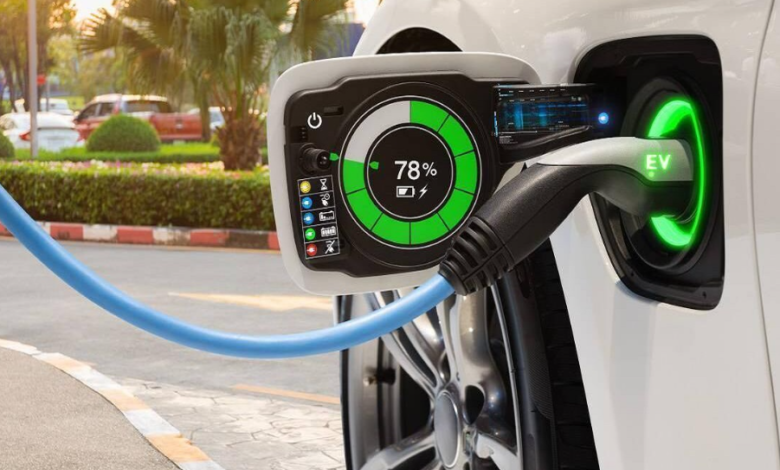Electric Vehicle And The Future Of Smart Transportation

In today’s world of advancing technology and growing environmental concerns, the shift toward smart mobility is not just a trend but a necessity. One of the most significant advancements in this direction is the rise of the electric vehicle. With climate change, rising fuel costs, and the global demand for sustainable development, electric mobility has moved from concept to reality, revolutionizing transportation systems worldwide.
The Concept Of An Electric Vehicle
An electric vehicle (EV) is a type of automobile that is powered entirely or partially by electric power. Unlike traditional gasoline-powered vehicles, EVs use an electric motor that draws energy from a rechargeable battery pack. There are different types of EVs such as Battery Electric Vehicles (BEVs), Plug-in Hybrid Electric Vehicles (PHEVs), and Hybrid Electric Vehicles (HEVs). Each comes with its own unique features and benefits.
Environmental Benefits Of Electric Vehicles
One of the main reasons why the electric vehicle has gained so much popularity is its contribution to reducing carbon emissions. Conventional vehicles are among the biggest contributors to air pollution. In contrast, EVs produce zero tailpipe emissions, making them an environmentally friendly alternative. As more renewable energy sources like solar and wind power are integrated into electricity grids, the carbon footprint of charging EVs is also expected to decline.
Economic Impact And Cost Efficiency
Although the upfront cost of an electric vehicle may still be higher than that of a fuel-powered car, the long-term benefits outweigh the initial expense. EVs have fewer moving parts, which leads to lower maintenance costs. They also benefit from lower operational costs due to the lower price of electricity compared to gasoline. Governments in many countries provide incentives such as tax credits, rebates, and free charging to encourage EV adoption, making them even more economically attractive.
Technological Advancements In The EV Industry
Technology plays a crucial role in the development and success of electric vehicles. Major improvements in battery technology, especially lithium-ion batteries, have increased the range and efficiency of EVs. Fast charging stations are now more widely available, making it easier for users to recharge their vehicles on the go. In addition, integration with artificial intelligence (AI) and smart features such as autonomous driving and advanced driver assistance systems (ADAS) are making EVs smarter and safer.
Challenges Facing Electric Vehicle Adoption
Despite the many advantages, the widespread adoption of the electric vehicle still faces several challenges. One major issue is the lack of charging infrastructure in many regions. Range anxiety, which is the fear of running out of battery charge, also remains a significant concern. Battery degradation over time and the environmental impact of battery disposal are other issues that need attention. Additionally, consumer awareness and trust still need improvement for mass adoption.
See also: Choosing a Dependable Custom Spring Supplier
Government Policies And Global EV Trends
Governments worldwide are playing a crucial role in promoting the electric vehicle. Countries like Norway, China, and the Netherlands are leading the way in EV adoption through strong policy support. This includes investment in charging infrastructure, tax exemptions, and strict emission regulations for automobile manufacturers. In many parts of the world, authorities have set future deadlines to phase out gasoline and diesel vehicles, boosting the demand for electric alternatives.
Role Of Electric Vehicles In Smart Cities
As cities evolve into smarter ecosystems, the electric vehicle becomes a key component of urban mobility. Smart cities are integrating EVs into public transportation systems, ride-sharing platforms, and logistics networks. The use of big data and IoT (Internet of Things) in EVs allows for real-time monitoring, predictive maintenance, and traffic management. This not only reduces congestion and pollution but also improves the overall quality of life in urban areas.
The Future Outlook Of Electric Mobility
The future of the electric vehicle industry looks promising. According to industry analysts, the global EV market is expected to grow significantly in the next decade. Automakers are investing heavily in research and development to create more affordable and efficient models. As battery costs continue to decline and infrastructure expands, EVs are set to become mainstream. Furthermore, innovations like wireless charging and vehicle-to-grid (V2G) technology will further enhance their appeal.
Consumer Awareness And Education
For the electric vehicle revolution to succeed, consumer awareness is vital. Many potential users are still unfamiliar with how EVs work, their benefits, and the available options in the market. Educational campaigns, test-driving programs, and transparent information are essential to bridge the knowledge gap. Automakers and governments must work together to create trust and remove misconceptions about electric mobility.
Final Thoughts
The transition to the electric vehicle is not just a change in how we drive, but a transformation in how we live and move in the world. It presents a cleaner, more efficient, and smarter way to travel. While there are still barriers to overcome, the ongoing innovations and support from both the public and private sectors indicate a bright future. As awareness grows and technology advances, electric vehicles will not just be an option—they will become the norm in a sustainable and smart world.




